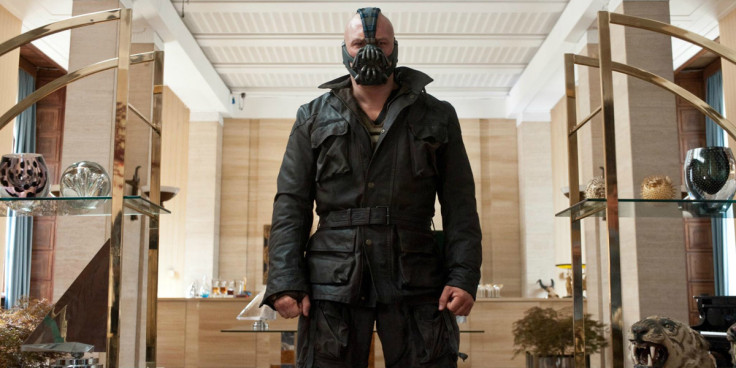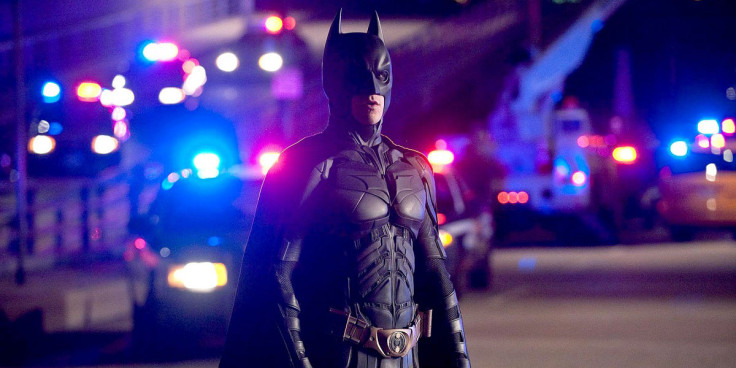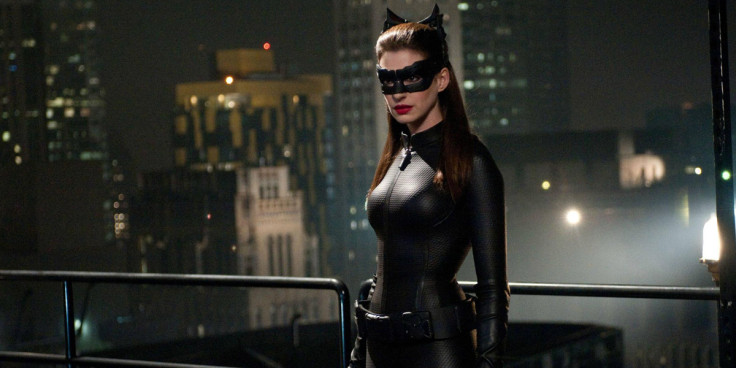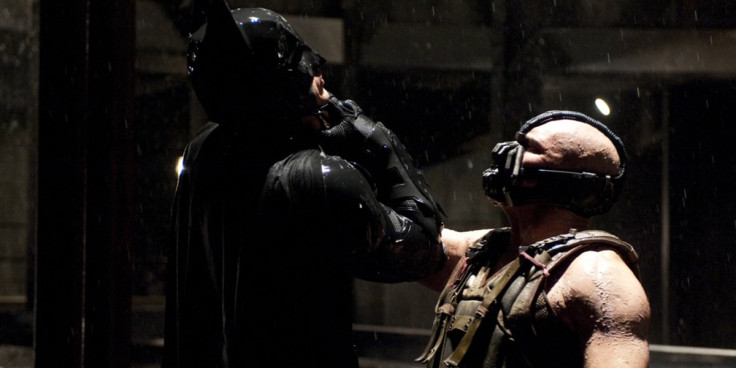The Dark Knight Rises: The Films of Christopher Nolan

In our continuing series, IBTimes UK looks at the work of British director Christopher Nolan in the lead up to the release of his ninth film, Interstellar. This week we look at The Dark Knight Rises, the epic but flawed conclusion to his Batman trilogy.
If you've been following this series you'll know I'm a big fan of Christopher Nolan, which makes this final entry prior to next week's Interstellar review a little bit different.
The Dark Knight Rises is not a terrible movie by any stretch but of all Nolan's films, it is the one easiest to pick apart. His conclusion to the story he started seven years prior with Batman Begins ends in a satisfying but nonetheless messy fashion.
Rises is a very different movie to Begins and The Dark Knight (TDK), playing out on a grander scale and upping the ridiculousness more than a few notches. The story concerns the return of Ra's al Ghul's (Liam Neeson) League of Shadows, led by the monstrous Bane (Tom Hardy), who wishes to destroy Gotham City.
Bane's immense strength, cunning and drive is juxtaposed with Bruce Wayne's (Christian Bale) deterioration. Eight years on from the events of TDK, he's a shut-in, a wreck who has hung up the Batman cowl and will not move on with his life. When Bane turns up to wreak havoc in Gotham, however, Wayne is all-too-please to suit up again.

One of the problems with The Dark Knight Rises is that it does not handle its plot strands as deftly as The Dark Knight, which came together in a much neater (but not entirely neat) fashion. This leads to an abundance of plot holes and contrivances falling through and weakening the experience.
Bruce's back being healed with a magical punch, his knee being fixed with a robot brace (which he then loses to no ill effect), nobody linking Bane's attack on the stock market with the fraudulent transactions created to empty Wayne's coffers, the fact everyone in Gotham takes a masked lunatic's word for it that their police commissioner had been lying to them, Wayne somehow getting back into a locked-down Gotham after escaping the Lazarus Pit – there too many of these plot holes to ignore.
Let us focus on the good, though, and there is a lot of it. Nolan's direction throughout is top notch and with long-time cinematographer Wally Pfister (working on his last Nolan film) creates many visually memorable scenes. The sight of the Lazarus Pit, the music-free fight between Bane and Batman at the film's centre and the snowy street battle at its end are all wonderful.
In Bane, Tom Hardy creates a brilliant villain, a unique and unforgettable monster. Anne Hathaway, too, nearly steals the show as Selina Kyle, aka Catwoman. Nolan's idea of turning the Lazarus Pit (in the comics a literal pit of magic used to resurrect people) into a prison from which Wayne emerges reborn is also inspired and the whole escape sequence is phenomenal.

Many fans doubted Hathaway's potential as Catwoman (as many doubted Heath Ledger as The Joker) but were proven wrong with a memorably sultry but serious turn – a far cry from Michelle Pfeiffer's cat in Batman Returns. However her scene-stealing takes a lot away from Marion Cotillard's Miranda Tate, a character of such little consequence until a final twist she dreams of being half-baked.
Her relationship with Bruce is set up by little more than Alfred (Michael Caine) and Lucius (Morgan Freeman) telling him "Oh isn't she just lovely?" and nudging him in the ribs. Suddenly they end up together, briefly, but at the end it is revealed that she is in fact Talia al Ghul, the daughter of Ra's who is seeking vengeance for her father's death and stands beside Bane atop the League of Shadows.
The twist is one of Nolan's weakest because the character is not given enough screen time for the audience to care when she turns. Cotillard's obvious pregnancy during filming and her ludicrously bad death scene just compound the problems with how her character was handled. Compared with her terrific turn in Inception, this is a bitter disappointment.
Another character who suffers is Gary Oldman's Commissioner Gordon, who is generally pretty useless. He gets shot, spends the second act in hospital, makes the incredibly stupid decision to send every Gotham policeman underground and is apparently the last person in Gotham to figure out Bruce Wayne is Batman.
The ending is also a logical nightmare. Catwoman conveniently shows up out of nowhere to kill Bane, the events that unfold could never happen in the short time-frame depicted on screen and then there is the matter of how exactly Batman manages to fake his death. Not to mention how easy the supposedly dead billionaire Bruce Wayne finds living in Italy without being recognised.

The Dark Knight Rises is littered with problems but in the moment and as a conclusion, it works because it is a film of individual brilliance. The performances are great, the action scenes work very well and the concluding minute provides a rousing, crowd-pleasing ending despite some of the flawed logic involved.
You have wonder how different things might have been if Ledger had not died. The Joker was such a strong a character, Nolan must have considered his return prior to Ledger's death and the studio would certainly have demanded it.
Quite what a third Nolan Batman film with The Joker front and centre would have looked like will be the subject of fan conjecture for years to come but what we got instead was still a comic book superhero movie unlike any other – a grand epic of theme and scale played out without copious CGI trickery. It will be long time before we see its kind again.
Next week: Our review of Interstellar.
© Copyright IBTimes 2025. All rights reserved.






















